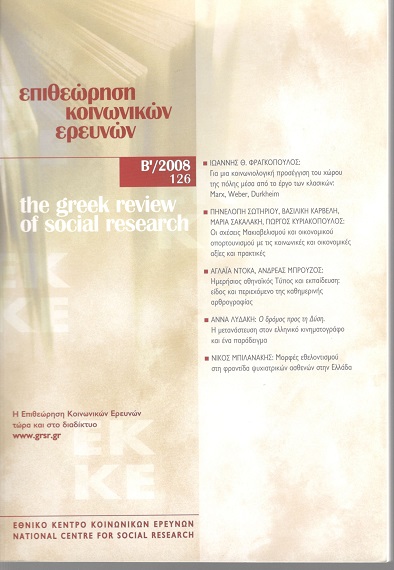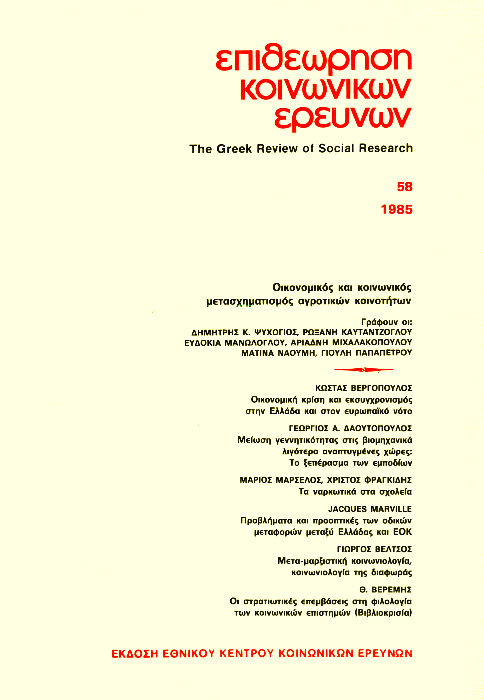Εκπαιδευτικές ανάγκες εργαζομένων και αυτοαπασχολούμενων στα ταξιδιωτικά πρακτορεία
Abstract
Η μελέτη αυτή εξετάζει τις εκπαιδευτικές ανάγκες των εργαζομένων και αυτοαπασχολούμενων σε ταξιδιωτικά γραφεία-τουριστικά πρακτορεία και ειδικότερα εκείνων οι οποίοι αποτελούν ευάλωτη επαγγελματικά ομάδα και απειλούνται με άμεση αντικατάσταση, δηλαδή των εργαζομένων (ανδρών - γυναικών) άνω των 40 ετών με χαμηλές δεξιότητες.
Τα αποτελέσματα της έρευνας καταδεικνύουν: α) την «επιφυλακτική» προσέγγιση της εργοδοσίας απέναντι στην αξία της επίσημης και οργανωμένης αρχικής εκπαίδευσης, και β) τη συνειδητοποίηση όλων των εργαζομένων -ανειδίκευτων, απόφοιτων τουριστικών σχολών, κατόχων μεταπτυχιακού- της αναγκαιότητας για συνεχή και συμπληρωματική κατάρτιση στη διάρκεια της εργασίας τους, η οποία συνοδεύεται και από προτάσεις εκπαίδευσης και εξειδίκευσης σε συγκεκριμένα θεματικά πεδία
Article Details
- How to Cite
-
Μάρκου Ά., & Μανώλογλου Ε. (2016). Εκπαιδευτικές ανάγκες εργαζομένων και αυτοαπασχολούμενων στα ταξιδιωτικά πρακτορεία. The Greek Review of Social Research, 126, 131–160. https://doi.org/10.12681/grsr.9893
- Issue
- 2008: 126 B'
- Section
- Research presentation

This work is licensed under a Creative Commons Attribution-NonCommercial 4.0 International License.
Authors who publish with this journal agree to the following terms:
- Authors retain copyright and grant the journal right of first publication with the work simultaneously licensed under a Creative Commons Attribution Non-Commercial License that allows others to share the work with an acknowledgement of the work's authorship and initial publication in this journal.
- Authors are able to enter into separate, additional contractual arrangements for the non-exclusive distribution of the journal's published version of the work (e.g. post it to an institutional repository or publish it in a book), with an acknowledgement of its initial publication in this journal.
- Authors are permitted and encouraged to post their work online (preferably in institutional repositories or on their website) prior to and during the submission process, as it can lead to productive exchanges, as well as earlier and greater citation of published work (See The Effect of Open Access).




